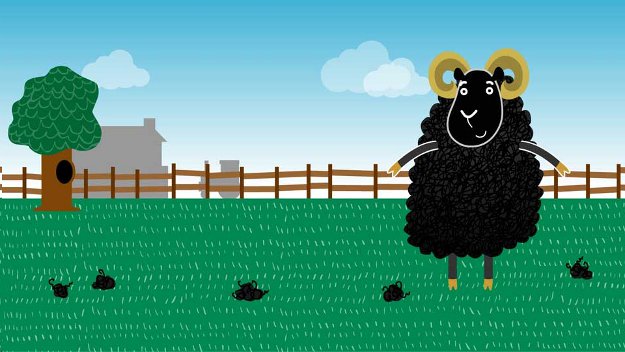Political Correctness Gone Amok

Have we reached a point where we can’t say anything to anybody—privately or publicly—without checking to see if the PC police are nearby?
A clear majority (79 percent) thinks so, according to a recent Rasmussen Reports survey.
The subject of political correctness burst into the news late last year when A&E suspended Phil Robertson, the star of one of cable T.V.’s biggest hits, “Duck Dynasty,” from appearing on the show following his comments about gay people in a GQ interview.
Responding to a question about what behaviors he believes are sinful, Robertson cited the Bible’s condemnation of homosexuality.
The response to A&E’s action was fast and furious. Media pundits, including some from the right and left, argued that A&E was punishing Robertson for his constitutionally protected religious views – albeit views that were crudely expressed.
A&E was inundated by hundreds-of-thousands of emails and calls from “Duck Dynasty” fans sharply critical of the network.
A spokesperson for GLAAD, the LGBT advocacy group that led the charge to get Robertson suspended, said he never before received so many livid calls and social media posts.
A&E was forced to back down a week later -- but did so in what can only described as a P.C. correct manner.
What exactly constitutes politically incorrect speech?
Pinning down what politically incorrect means is a little like what former Supreme Court Justice Potter Stevens said about defining pornography…”I know it when I see it.”
According to the Merriam Webster dictionary, political correctness means, “conforming to a belief that language and practices which could offend political sensibilities (as in matters of sex or race) should be eliminated.”
Political correctness first took over America’s institutions of higher learning in the 1970s – then quickly captured the media and entertainment industries.
Jobs can be lost, careers destroyed, reputations sullied for merely saying what the P.C. police deem unacceptable.
The muzzle that political correctness has become doesn’t just affect those who are voicing sincere religious beliefs either.
It has come to hinder what we say about almost everything – politics, race, sexual orientation, body image, etc.
In many circles, particularly public ones, people are criticized for merely saying “Merry Christmas” instead of “Happy Holidays,” and cities have been forced to take down religious Christmas displays such as crèches.
Freedom of expression has taken a back seat to the fear of offending – even if those being offended are very few in number.

While the original goals of P.C. were beneficial in that they encouraged sensitivity to the views and feelings of others, the longer-term result has been to stifle important conversations about topics like race, gender, religion, and sexual orientation.
“These days everyone is so afraid of being called “sexist,” “racist,” or “anti-Semitic” or some other career-killing label, that we all tiptoe carefully around diversity issues, and avoid them altogether if we possible can,” says BJ Gallagher, co-author of the bestselling diversity classic A Peacock in the Land of Pilgrims.
Gallagher goes on to say that if we are forced to constantly self-sensor any conversation about race, gender, religion, sexual orientation, or physical ability, then we are doomed to perpetuate the very barriers we say we want to overcome.
If somebody of Gallagher’s ilk believes we may have gone too far, clearly it’s time to rethink how we apply political correctness to what is considered “acceptable” speech and behavior in both our private and public spheres.
And political correctness is hardly in vogue only in the U.S. as some of the following examples attest to.
Political Correctness’ Biggest Hits
Lulueman’s founder created a commotion when he said the company’s yoga pants “don’t work for some women’s bodies,” and was forced to back down on his statement.
A student at Sonoma State University was ordered to take off a cross that she was wearing because someone “could be offended.“
A teacher in New Jersey was fired for giving his own Bible to a student who did not own one.

Several local councils have banned terms using the word 'man' as a prefix or suffix because they aren’t politically correct. 'Manhole' is now referred to as a 'utility' or 'maintenance' hole.
Baba black sheep has been changed to baba rainbow sheep in some schools, in case the nursery rhythm could be deemed racist.
The UN has ordered Canada, a country that ranks among the world’s most inclusive and least prejudiced, to defend itself for the use of the term ‘visible minority’ in government documents.
A school in Seattle renamed its Easter eggs 'spring spheres' to avoid causing offence to people who did not celebrate Easter.
A UK recruiter was stunned when her job advertisement for 'reliable' and 'hard-working' applicants was rejected by the job center since it could be offensive to unreliable and lazy people.
The European Parliament introduced proposals to outlaw titles stating marital status such as 'Miss' and 'Mrs' so as not to cause offense.
A UK council has banned the term 'brainstorming' – and replaced it with 'thought showers', as local lawmakers thought the term could offend epileptics.
Author Bio:
Mark Goebel is a contributing writer at Highbrow Magazine.





























































































































































































































































































































